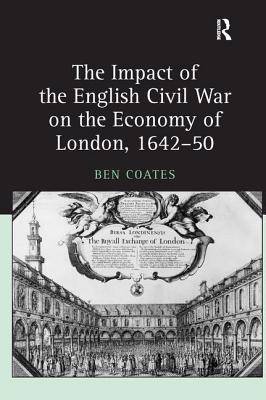
- Retrait gratuit dans votre magasin Club
- 7.000.000 titres dans notre catalogue
- Payer en toute sécurité
- Toujours un magasin près de chez vous
- Retrait gratuit dans votre magasin Club
- 7.000.0000 titres dans notre catalogue
- Payer en toute sécurité
- Toujours un magasin près de chez vous
The Impact of the English Civil War on the Economy of London, 1642-50
Ben Coates
Livre relié | Anglais
182,45 €
+ 364 points
Description
When the English Civil War broke out, London's economy was diverse and dynamic, closely connected through commercial networks with the rest of England and with Europe, Asia and North America. As such it was uniquely vulnerable to hostile acts by supporters of the king, both those at large in the country and those within the capital. Yet despite numerous difficulties, the capital remained the economic powerhouse of the nation and was arguably the single most important element in Parliament's eventual victory. For London's wealth enabled Parliament to take up arms in 1642 and sustained it through the difficult first year and a half of the war, without which Parliament's ultimate victory would not have been possible. In this book the various sectors of London's economy are examined and compared, as the war progressed. It also looks closely at the impact of war on the major pillars of the London economy, namely London's role in external and internal trade, and manufacturing in London. The impact of the increasing burden of taxation on the capital is another key area that is studied and which yields surprising conclusions. The Civil War caused a major economic crisis in the capital, not only because of the interrelationship between its economy and that of the rest of England, but also because of its function as the hub of the social and economic networks of the kingdom and of the rest of the world. The crisis was managed, however, and one of the strengths of this study is its revelation of the means by which the city's government sought to understand and ameliorate the unique economic circumstances which afflicted it.
Spécifications
Parties prenantes
- Auteur(s) :
- Editeur:
Contenu
- Nombre de pages :
- 256
- Langue:
- Anglais
Caractéristiques
- EAN:
- 9780754601043
- Date de parution :
- 28-03-04
- Format:
- Livre relié
- Format numérique:
- Genaaid
- Dimensions :
- 156 mm x 233 mm
- Poids :
- 497 g

Les avis
Nous publions uniquement les avis qui respectent les conditions requises. Consultez nos conditions pour les avis.






